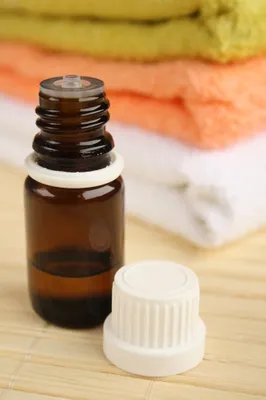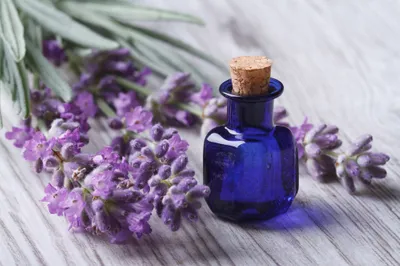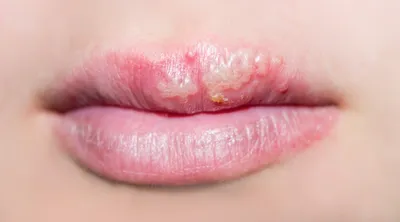A few weeks back, I was struck with a painful tension headache when out with a friend for lunch. Low and behold, she reached into her purse, produced a small bottle of peppermint essential oil, and told me to dab a little bit on each temple. Even though I was slightly hesitant, I complied because I love the smell of peppermint. Wasn’t I surprised when my headache cleared and I was able to enjoy the rest of the afternoon, totally pain free!
When it comes to taking control of our personal health and wellness, natural plant oils can provide a safe, aromatic, and drug-free option for a variety of health woes (i.e., for anxiety, acne, cold sores, and digestive issues). Of course, I always encourage you to talk to your doctor before administering any self-treament…
1. Tea Tree Oil for Acne
Tea tree oil, known also as Melaleuca, is a natural plant oil with antibacterial and antiviral properties, meaning it can kill bacteria when applied topically to pimples and the nasty skin-dwelling bacteria that encourage acne to develop.
Even though only a small body of evidence has tested this theory, a randomized trail conducted in Australia and published by the National Institutes of Health tested the effectiveness of melaleuca oil as a topical antiseptic on 124 patients, and compared its efficacy to benzoyl peroxide lotion. The results showed that while tea-tree oil and benzoyl peroxide had similar effects in reducing acne and non-inflamed lesions, participants treated with melaleuca oil experienced fewer side effects (i.e., dry skin, redness, irritation).
2. Fennel Oil for Digestive Issues
Fennel oil has long been administered to soothe various digestive woes—including bloating, gas and menstrual cramps, heartburn, and even colic in infants. The native Mediterranean herb is often confused with anise. However, even though they taste and smell similar to licorice, they are not the same.
The fennel plant is used as a medicinal oil after the yellow flowers are dried into seeds. According to research from the NYU Langone Medical Center, fennel seeds stimulate the flow of bile as they relax digestive and abdominal muscles, thus reducing pain and easing digestion.
3. Lavender for Anxiety
There’s little surprise that the soft, calming scent of lavender is able to banish stress and ease anxiety. According to a controlled clinical study published by the U.S. National Library of Medicine, lavender oil was tested on a group of patients with Generalized Anxiety Disorder (or GAD) for effectiveness compared to Lorazepam, a common a benzodiazepine that causes sedation and has a high probability for patient addiction with long-term use.
Findings from the 6-week study on GAD patients measured the reduction in anxiety overall. Both the lavender oil and lorazepam decreased anxiety to a similar extent in both groups. However, the lavender oil caused no sedative effects and no potential for future drug abuse.
4. Lemon Balm Oil to Treat Cold Sores
Lemon balm, also known as Melissa officinalis, has long been used as a calming agent—promoting stress relief, beating insomnia, and for taking the sting out of insect bites. Today, however, lemon balm oil is often incorporated into topical creams made to treat oral herpes-related cold sores, largely due to the herb’s anti-viral and anti-microbial nature.
Research conducted at the University of Maryland Medical Center suggest that topical ointments containing lemon balm are effective in treating redness, swelling, and reducing the healing time of cold sores caused by herpes simplex virus (HSV).
5. Peppermint for Pain Relief
In addition to its prowess as a digestive stimulant and a breath freshener, peppermint is lesser known as a natural pain reliever. In fact, the herb is given plenty of props as a means to soothing nausea, headaches, and premenstrual cramps.
In fact, studies from the NYU Langone Medical Center, claims that a drop of peppermint oil applied to each temple and the back of your skull (dab just under where the hairline meets the neck) may help banish a tension headache.
6. Basil Oil for Longevity
If you’ve ever sipped on a tulsi tea, you’ve already absorbed the beneficial properties of basil oil. Holy basil, as its known in India, is often administered for longevity in Ayurvedic medicine and also used to treat a variety of medical conditions—such as arthritis, heart problems, stress-related issues, headaches, muscle stiffness, asthma, and bronchitis.
A 1991 animal study, published in the Indian Journal of Pharmacology, celebrated holy basil’s potency in reducing stress and lessening dangerous levels of chronically elevated cortisol (the fight or flight hormone), which can have harmful effects on immune function, weight, and cause an array of chronic diseases (i.e., type 2 diabetes and cardiovascular disease).
7. Eucalyptus for Congestion
If you suffer from regular coughs, runny noses, raspy lungs, and sinus congestion, several bodies of research claim that eucalyptus oil will provide some much-needed relief and clear those airways.
Studies from the Milton S. Hershey Medical Center at Penn State, suggest that adding a small drop of eucalyptus oil to your bath, rubbing between your hands and cupping over your nose and mouth, applying a drop to the chest, or dabbing a small portion onto each foot will relieve congestion. While medical experts never recommend taking eucalyptus by mouth (unless specified by your doctor), the oil has expectorant properties, which means it loosens phlegm and calms stubborn coughs.










